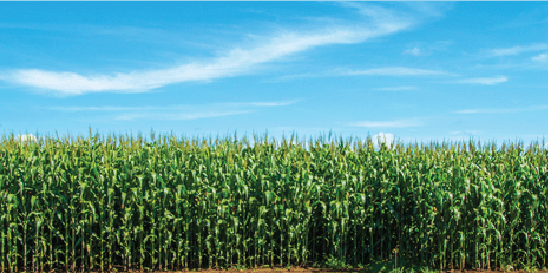Homegrown Energy
Everything that moves or has power requires fuel (energy) in order to work.
Have you ever wondered where that fuel comes from? A lot of energy we use comes from natural resources like the sun, or fossil fuels like coal, natural gas, and oil (petroleum). The sun is a renewable resource because it is a never ending supply of energy. Fossil fuels however, are a nonrenewable resource, because they are hard to replace and will eventually run out. That's why it is so important to find renewable ways to create energy. Agriculture and science are teaming up to do just that.
Can you identify renewable and nonrenewable resources?
One way agriculture in Minnesota is creating energy is through corn power. 10% of gasoline that you use to power a car is made up of ethanol, which comes from corn!
Unlike fossil fuels, corn is a renewable resource (if we need more corn, we can plant more corn), and in Minnesota, we can grow a lot of corn. Plus, ethanol burns a lot cleaner than gasoline which also helps keep our air cleaner.

Environmental Cause and Effect
Cause and effect is when something happens (cause), which causes something else to happen (effect). Read the text and look at the images on this page to find examples of cause and effect that can occur from using natural resources to create energy.
For each cause below, write the effect.
Example: Minnesota farmers use the natural resources soil, water and sunlight, to grow corn that is used to produce ethanol (cause). Energy is created without using fossil fuels and farmers work to protect natural resources so they can continue to grown corn (effect).
